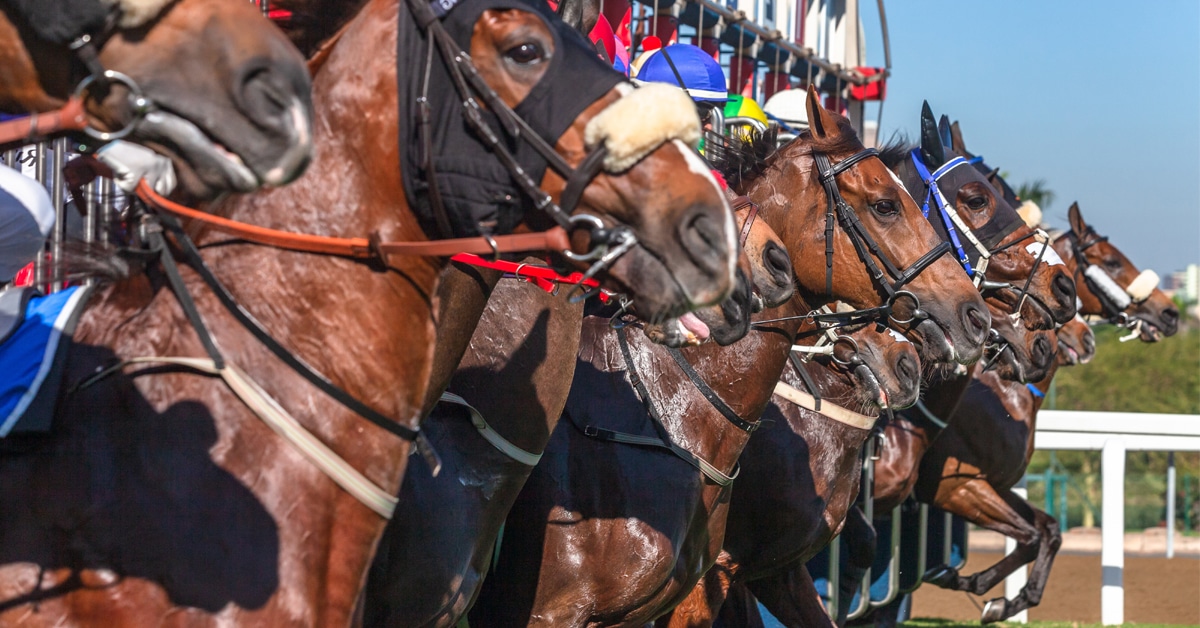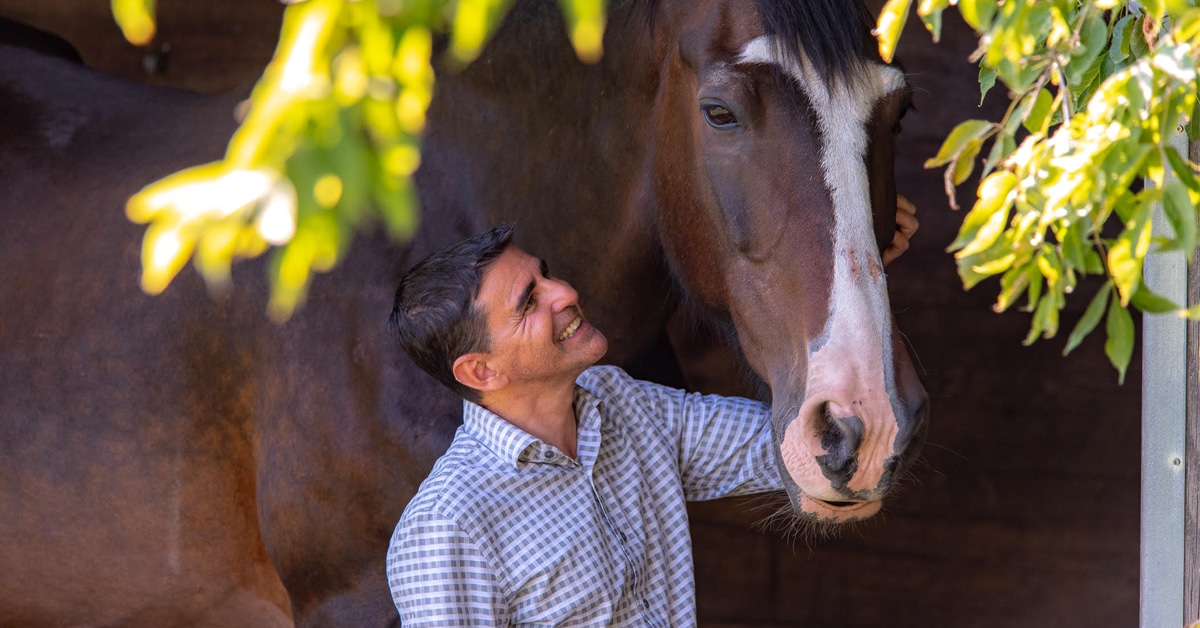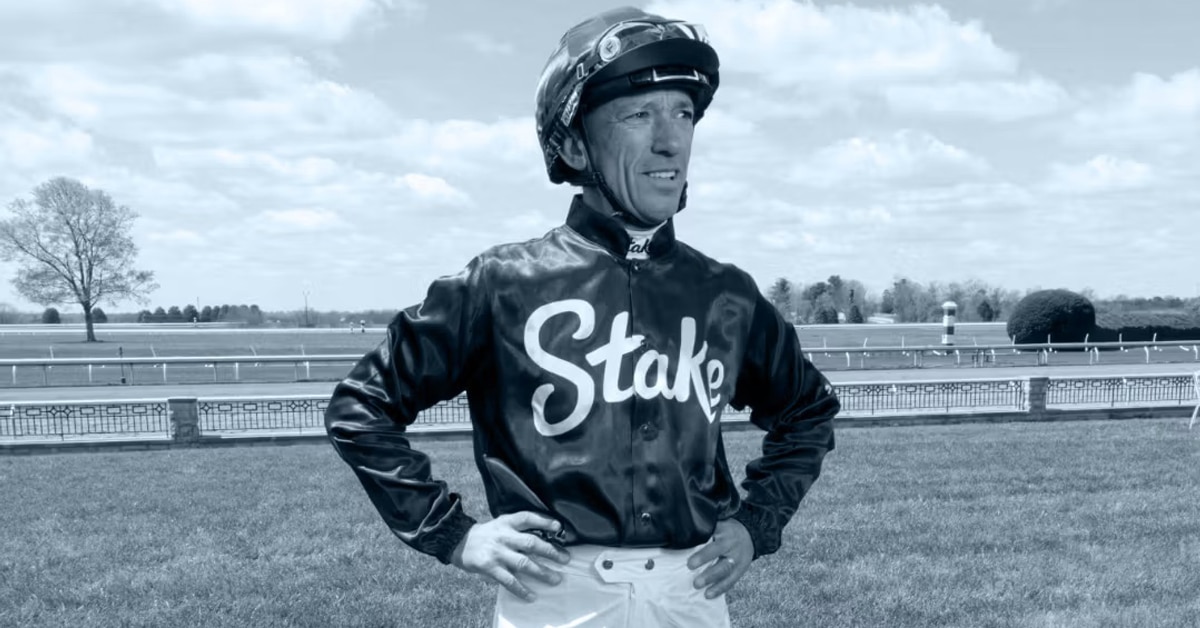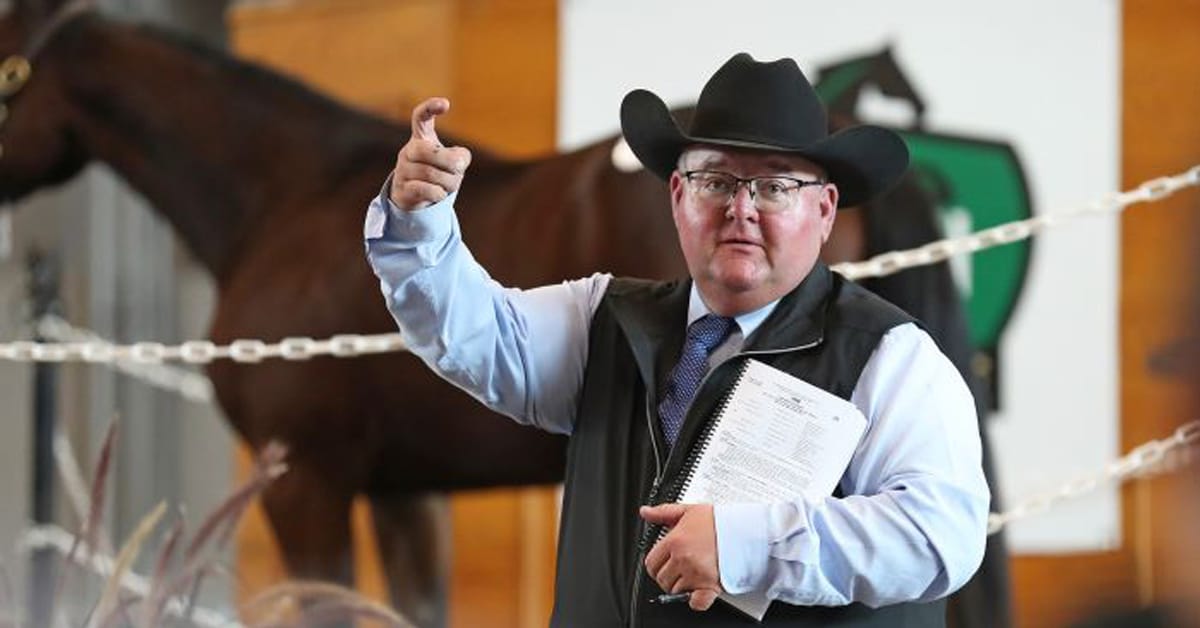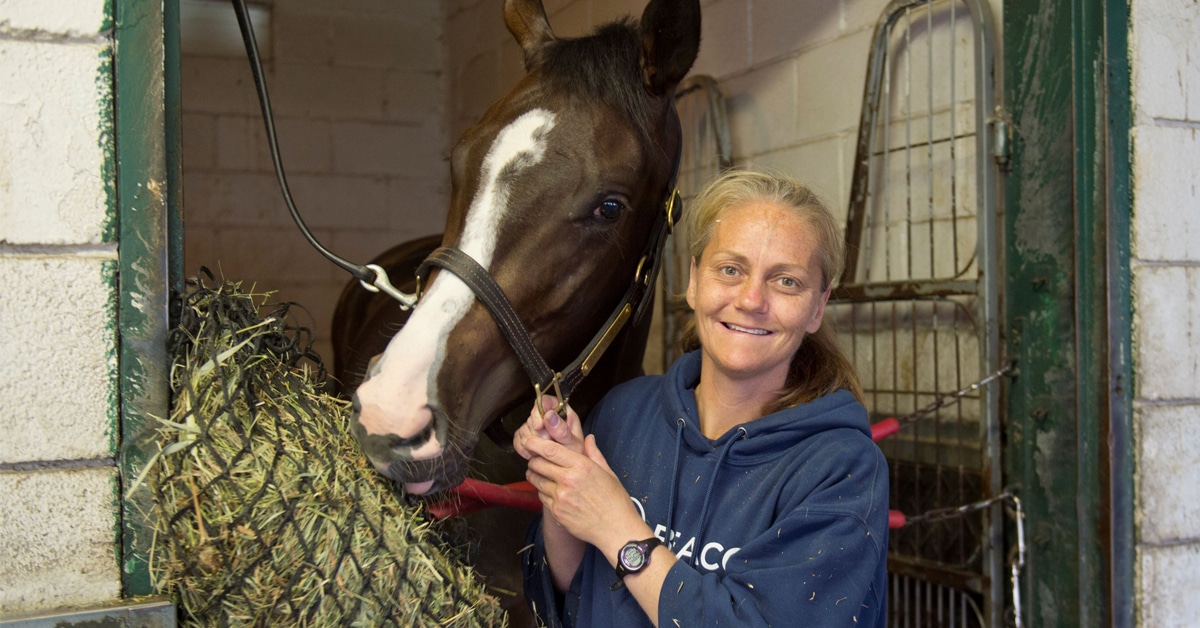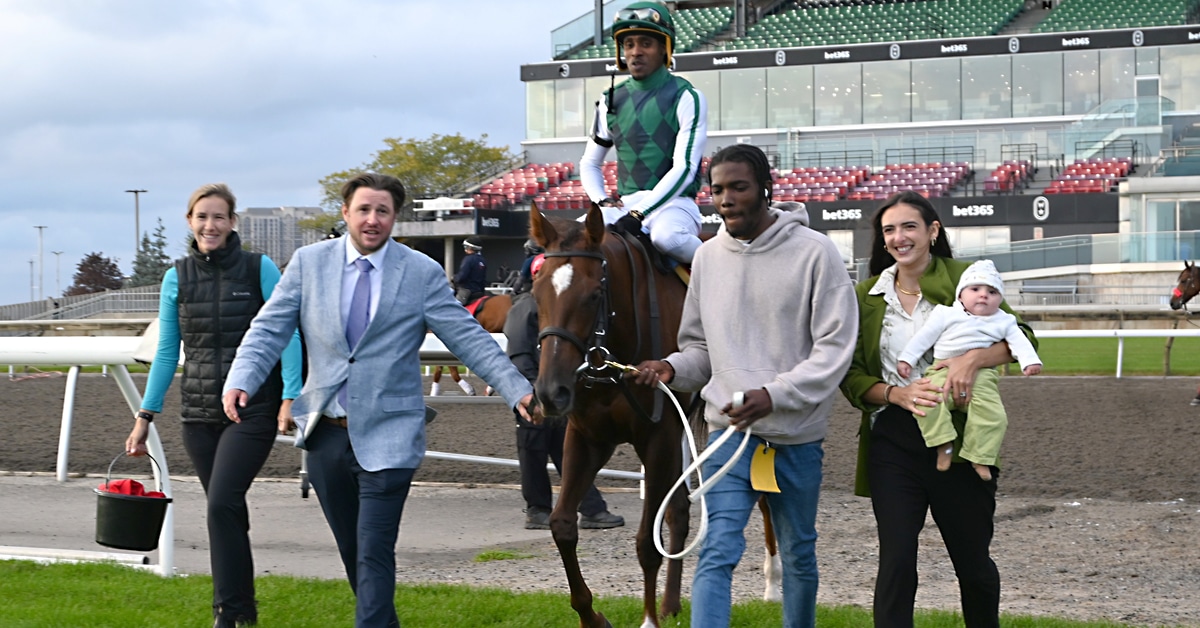Now before loyal Queen’s Plate followers start screaming, let me explain.
When Jack Hardy, builder, founder and owner of Assiniboia Downs in Winnipeg announced that the historic 25th edition of the Manitoba Derby was to have a guaranteed purse of $100,000, it received national attention. The Toronto Star noted that unless there were changes to Canada’s premier race, the Queen’s Plate could no longer call itself Canada’s richest thoroughbred horse race.
Hardy’s Derby would see the winner receive $60,000, $19,500 for second, $9,400 for third, $4,400 for fourth, $2,400 for fifth and $1,500 going to the sixth-place finisher.
As hard as it may be for some to believe, the Manitoba Derby significantly influenced the regal Queen’s Plate. From 1959 to 1972, the Plate had been a $50,000 Added event. However, in 1973, in order to retain the moniker Canada’s richest race, the purse was increased by $75,000 to $125,000.
As Assiniboia Downs readies itself for the 70th running of the premier event of its 2018 season, let’s take a closer look at the history behind the race.
The Forgotten Years – 1930 to 1940
The first “Derby” was run in 1930; although from 1930 to 1933 it was known as the Manitoba Stakes. In 1934, the name of the race was changed to the Manitoba Derby. The Manitoba Derby was the brainchild of Robert James Speers, the father of thoroughbred racing in Western Canada. Speers established the race for horsemen to showcase thoroughbreds that were foaled in Western Canada. In 1936, the Derby was opened to all horses bred in Canada. The race was run annually at old Polo Park race track with the exception of 1937 when it was ran at Whittier Park in St. Boniface.
In 1941, the name of the race was changed to the Canadian Derby. Few people realize that the heart and soul of the prestigious Canadian Derby can be found in Winnipeg and that the Canadian Derby was “born” out of the Manitoba Derby. At that time, Canada was the only major country that did not have a national “derby,” so Speers sacrificed “Manitoba” for a more national flavour.
The new Canadian Derby was run annually at Polo Park race track until it closed in 1956 and the race was relocated to Edmonton. Jack Hardy tried to bring the race back to Winnipeg when Assiniboia Downs opened in 1958, but was unsuccessful so the Canadian Derby is still run in Edmonton.
Assiniboia Downs Derby History 1960 and Beyond
In 1960, the Manitoba Derby with its storied past was resurrected and it has been run at the Downs ever since. In 1985, the Derby was changed to an open event for all three-year-old thoroughbreds. To date, three Manitoba breds have won the Derby. Gowerlace was the first to accomplish the feat in 1938. It took almost 40 years for the next, Merry’s Jay, to win the race in 1976 and local bred Royal Frolic followed in 1993.
On Monday, Aug. 6, Assiniboia Downs proudly celebrates the 70th running of the Manitoba Derby. The list of previous winners reads like a who’s who of racing with national and local champions such as Fanfreluche, Merry’s Jay and Overskate. The list of winning owners includes Levesque, Mitchell and K5 Stables; as well as trainers Rowntree, Blake and Starr. Jockeys Hawley, Krone and Platts are but a few of the riders who have won the Derby.
Assiniboia Downs couldn’t be prouder of its Manitoba Derby and it owes a huge debt of gratitude to founder Jack C. Hardy for reviving the race and its storied past back in 1960.
Here’s a snapshot of some special Derby memories:
Sept. 3, 1930: Winner – Jack Whittier
No less than seven of the 13 starters in the race bore the name “Whittier” because they were bred by R. J. Speers on his Whittier Park Stock Farm in St. Boniface. Notable jockeys in the race included Dwight Hurlburt, who rode the winner, Don Meade, “Red” Pollard of Seabiscuit fame and the legendary Johnny Longden.
Aug. 5, 1963: Winner – Brother Leo
Always popular Harold “Spud” Murphy from Calgary came to town with the best horse he ever owned and left with all the marbles. The summer of 1963 was very good to Spud and Brother Leo. Murphy was the first owner/trainer/breeder to capture the “Prairie Triple Crown” which consisted of the Alberta, Manitoba and the Canadian Derby.
July 15, 1970: Winner – Fanfreluche
The Manitoba Centennial Derby featured a trip from the Royal Family where Queen Elizabeth presented her “Queen’s Cup” to Jean-Louis Levesque owner of the winning horse, Fanfreluche. Fanfreluche was the first filly to win the Derby since Jack Hardy’s revival of the race in 1960. The Centennial Derby crowd of 11,127 is the largest Derby crowd in Downs history.
July 17, 1971: Winner – Speedy Zephyr
This Derby was run during a heavy prairie rainstorm, but that suited Charlie Rathgeb’s golden chestnut just fine. “Speedy” clipped a full second off the existing track record of 1:49 for the 1 and 1/8 mile classic, equaling or bettering the track record at each point of call.
Aug. 4, 1975: Winner – L’Enjoleur
The well-bred son of Fanfreluche followed in his mom’s footsteps by adding the Manitoba Derby to his list of accomplishments, but he bettered mom by also winning the Queen’s Plate. In 1970, mom only managed a second-place finish in the Plate.
Sept. 18, 1977: Winner – Giboulee
Giboulee was the only Manitoba Derby winner to have run in the Kentucky Derby. He ran 7th in the “Run for the Roses” and was one of 15 horses who took on Seattle Slew. “Slew” would go on to win America’s Triple Crown that year.
Sept. 9, 1978: Winner – Overskate
Jack Stafford’s little colt dominated the field winning by 13 1/2 lengths and setting a track record (1:47 3/5) in the process for the 1 and 1/8 miles – a record that stands today.
Aug. 1, 1988: Winner – No Malice
Jockey Julie Krone became the only female rider to win the Derby and experts agree that it was her masterful stretch ride that got No Malice home in front. In 1993, Krone was the first and so far the only female jockey to win a Triple Crown race when she was aboard Colonial Affair in the Belmont Stakes.
Aug, 1, 2016: Winner – Inside Straight
The big news on this Derby Day was not so much the winner of the race, but the loyal Downs supporters who wagered $1,106,999 on the card. It was the largest single day handle since the Downs opened its doors in 1958.
The Latest

